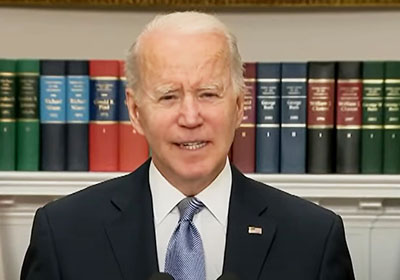by WorldTribune Staff / 247 Real News May 7, 2023
The Federal Deposit Insurance Corporation (FDIC) has estimated that actions it has taken to resolve the failures of First Republic Bank, Silicon Valley Bank, and Signature Bank cost U.S. taxpayers about $36 billion.

“If this last episode is any indication, as the federal government gets increasingly desperate in this banking crisis, as the crisis continues to escalate, what we’re seeing is an increasing willingness to basically use taxpayer money to bail out these institutions,” E.J. Antoni, an economist and research fellow at The Heritage Foundation, told Fox News Digital.
Joe Biden has now presided over the implosion of three of the four worst baking failures in the country’s history with First Republic Bank, Silicon Valley Bank, and Signature Bank having had assets worth $212 billion, $209 billion, and $110 billion, respectively, according to Federal Reserve data.
The FDIC announced on Monday that JPMorgan Chase would pay the agency $10.6 billion to take control of most First Republic assets, but that the move would cost the FDIC Deposit Insurance Fund about $13 billion. That federally-managed fund was created in the 1930s to provide a backstop in the event of major bank failures.
“Normally we would see larger banks acquiring these regional banks because they’re a good deal right now,” said Thomas Hogan, a senior research faculty at the American Institute for Economic Research and former chief economist on the Senate Banking Committee.
“Now that they’ve seen the government is willing to provide assistance, they’re going to wait until the banks are basically failed and then the government’s willing to provide some bailout package in order to make that acquisition possible,” Hogan said. “That definitely is what happened with First Republic and JPMorgan Chase. It’s a bad incentive. The precedent they’ve set is going to make private banks less willing to acquire or bail out these failing institutions.”
Regional banks that are currently facing significant market pressures include First Horizon Bank, PacWest Bancorp, and Western Alliance, Hogan said. All saw their share price plummet during trading on Thursday.
The Federal Reserve was widely criticized for maintaining extremely low pandemic-era interest rates for too long.
“When you force financial institutions to hunt for yield — which is exactly what they did by putting rates to zero and keeping them there for so long — you’re also forcing banks to take increasingly leveraged positions,” Antoni said.
“In other words, instead of just keeping a relatively large percent of deposits on hand because they can easily make money in relatively safe investments, they now have to take virtually all deposits and put virtually all of them into very risky positions,” he continued. “So, again, it’s an increase in leverage that didn’t have to happen. And now this is all coming home to roost.”
Membership . . . . Intelligence . . . . Publish
